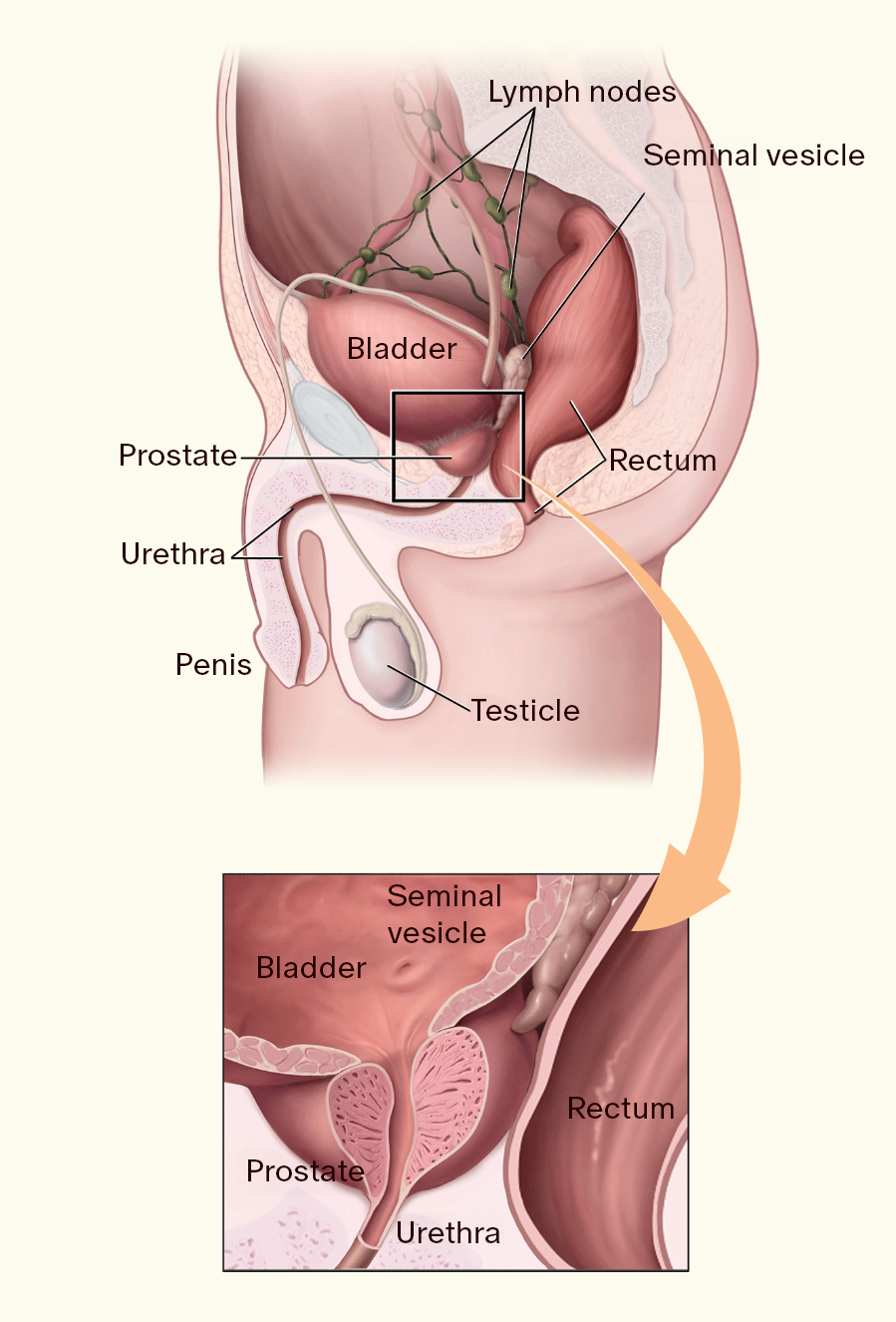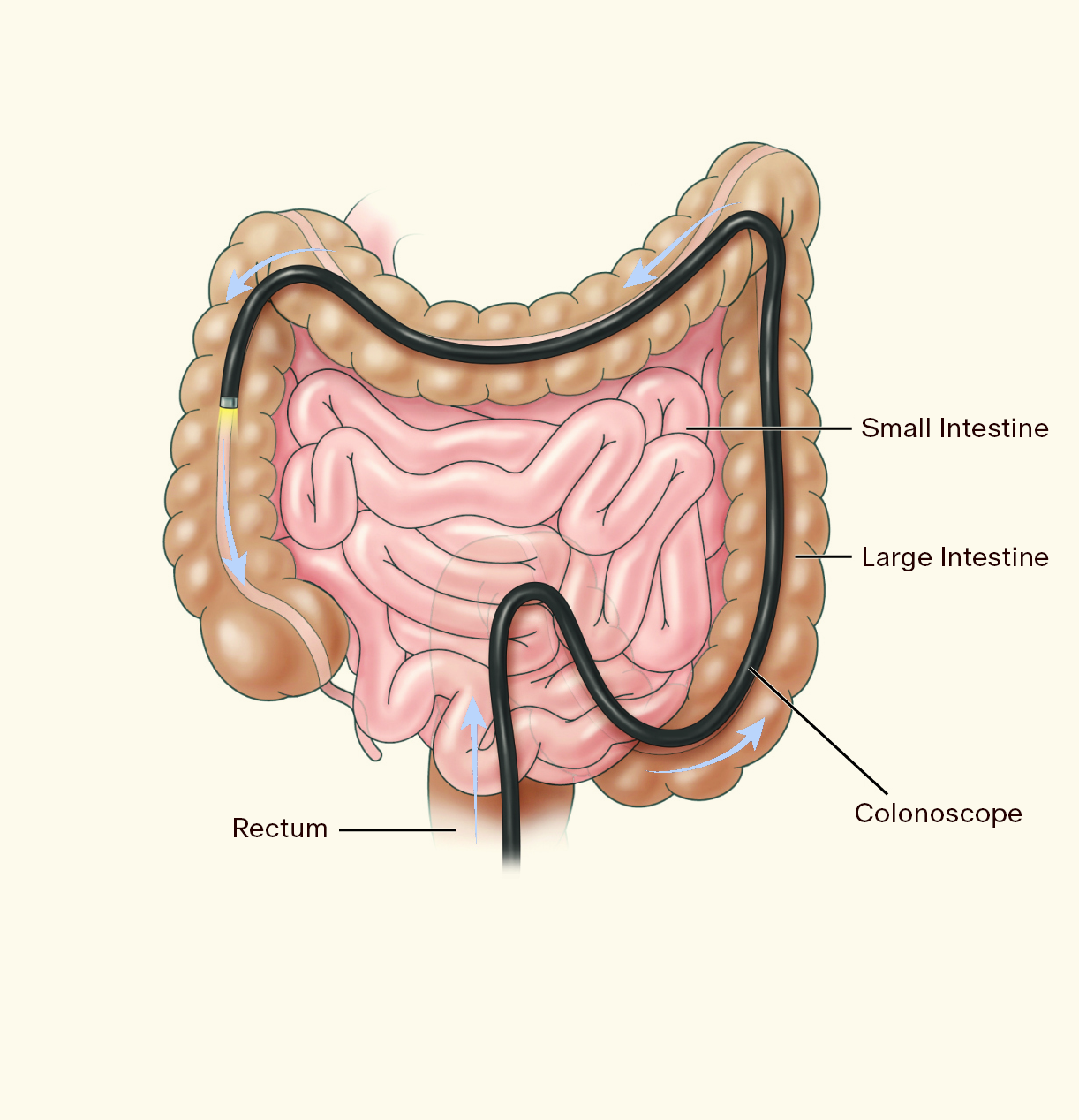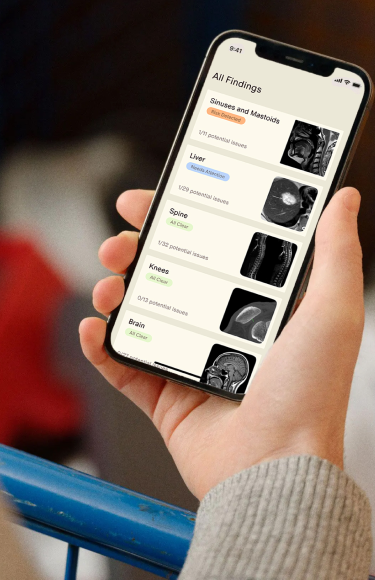What preventive health checkups are important for men? When should they be done, and what are the costs?
Men often tend to avoid preventive health checkups, partly because many associate "preventive care" with the dreaded (and often unfairly feared) visit to the urologist.
Of course, prostate cancer screening is part of comprehensive preventive care. But what about diseases that affect younger men, like cardiovascular diseases, diabetes, or other cancers? Regular preventive checkups can detect or prevent all of these and more at an early stage.
Regular health checkups for men not only reduce the risk of developing diseases but also increase the chances of successful treatment in case of illness.
Moreover, preventive checkups are usually painless and non-invasive.
In this article, you will learn which preventive checkups you should undergo at what age, how they typically proceed, and which ones are covered by mandatory health insurance (MHI).
Which Preventive Checkups Are Recommended for Men and When?
Preventive checkups are not just for men over 45 or those at high risk. Young men who feel healthy should also have regular checkups. But what does "regular" mean? And at what stages of life should you have which checkups? Below is a general overview.
Please note that the recommendations listed here are primarily for men without significant health history. Individuals at risk due to family predispositions or other factors may require earlier or additional checkups.
We encourage you to discuss the appropriate preventive checkups for you with your primary care physician and to inform yourself about your individual risk factors. Both are essential for comprehensive health care.
((should be graphically represented accordingly))
From Age 18
- One to two dental checkups per year with your dentist (i.e., checking your gum health, cavity risk, and other issues). Additionally, an annual professional teeth cleaning is recommended.
Between Ages 18 and 34
- A one-time general checkup for early detection of:
- Cardiovascular disorders (high blood pressure, arteriosclerosis, etc.)
- Diabetes
- Liver and kidney diseases
- Vaccination gaps (see below: "Which Vaccinations Are Important for Men?")
Between Ages 20 and 40
- Annual genital examination for cancer screening (especially testicular cancer)
From Age 35
- Every three years, a general checkup for early detection of:
- Cardiovascular disorders (high blood pressure, arteriosclerosis, etc.)
- Diabetes
- Liver and kidney diseases
- Vaccination gaps (see below: "Which Vaccinations Are Important for Men?")
- Every two years, a skin examination by a dermatologist for early detection of skin cancer (skin cancer screening)
From Age 50
- Annual prostate examination for cancer screening (prostate cancer)
- EITHER a colonoscopy every ten yearsOR a test for hidden blood in the stool every two years for colorectal cancer screening (up to age 69)
From Age 65
- One-time ultrasound examination for early detection of an abdominal aortic aneurysm (potentially life-threatening dilation of the abdominal artery)
MRI, an All-In-One Preventive Tool
The above age indications are, of course, guidelines. If you have concerns or symptoms, you should undergo these checkups earlier. For many diseases, an MRI is particularly suitable as a preventive examination. This includes various cancers (especially testicular cancer, as there is no specific screening for it), aneurysms, and fatty liver disease, which often have no symptoms in the early stages.
An MRI scan not only helps enable timely treatment but also provides clarity about your health status, which benefits your mental well-being and ensures peace of mind.
Which Vaccinations Are Important for Men?
In addition to the listed preventive checkups – whether individually or bundled in an MRI – it is crucial to keep track of your vaccination status. This article does not cover travel vaccinations, although they are also important, but rather standard vaccinations. The following are particularly relevant for men (the list includes one-time vaccinations and those that need to be updated):
((should be graphically represented accordingly))
Between Ages 9 and 14
- Vaccination against human papillomavirus (HPV vaccination)
Human papillomavirus (HPV) is responsible for a significant share of genital and anal cancers in men. There is also a suspected link between HPV infections and the occurrence of mouth and throat cancers. The vaccination protects against these cancers and other diseases caused by HPV.
From Adulthood
- Combination vaccination against diphtheria, tetanus, and pertussis between ages 25-29, for parents or prospective parents. Booster vaccinations every 10 years are recommended for those in contact with infants under 6 months and pregnant women.
- Catch-up vaccinations if you were not vaccinated as a child or teenager:
- Measles, mumps, and rubella
- Poliomyelitis
- Hepatitis B
- Human papillomavirus (HPV vaccination, recommended up to age 26 for maximum protection before sexual activity. In later years, the immune response is weaker, and the likelihood of previous HPV infection is higher.)
From Age 65
- One-time pneumococcal vaccination (risk of pneumonia)
- Annual flu vaccination, as older people are particularly vulnerable to severe flu
- One-time shingles (herpes zoster) vaccination
What to Expect at a Preventive Checkup
If you are considering an MRI, here is everything you need to know about the process ((link to MRI article)).
Additionally, at (aeon), we offer a relaxing atmosphere. We believe that MRIs should be done quickly and efficiently, while ensuring that you feel well cared for.
For the most important individual checkups, namely the general checkup (or Check-up 35) and the prostate and colorectal cancer screenings, this article outlines the procedures:
1) Prostate Cancer Screening
Properly conducted, the examination is brief, painless, and highly informative.
What is the Prostate?
The prostate is a gland located below the bladder and surrounding the upper part of the urethra. It primarily produces a component of your seminal fluid.

Throughout your life, the prostate enlarges (prostate enlargement), which can compress the urethra, impairing urine flow and causing symptoms like a weak urine stream or frequent urination. These changes are generally benign and treatable, distinguishing them significantly from prostate cancer.
Regular prostate screening is crucial because early diagnosis of prostate cancer significantly improves the chances of successful treatment. The checkup typically includes a digital rectal exam and can be supplemented with a PSA test upon request.
Digital Rectal Exam
After the consultation, your urologist will ask you to lie on your side and relax. They will then insert a finger into your rectum to feel for enlargements, hardening, lumps, or other changes in the prostate.
If an abnormal finding is detected during the exam, the next step is an ultrasound examination. If the suspicion of prostate cancer is confirmed, a tissue sample (biopsy) will be taken from your prostate and sent to a laboratory for analysis.
PSA Test
In addition to the digital rectal exam, you can have a Prostate-Specific Antigen (PSA) test. This involves a blood test to check for a protein produced in the prostate. An elevated PSA level may indicate prostate cancer.
BUT: An elevation can have benign causes (e.g., urinary tract infection, constipation, or even the pressure applied during the rectal exam).
Therefore, while the PSA test is an important tool for early cancer detection, it should be used in combination with other diagnostic methods (e.g., an MRI) to avoid the risk of misdiagnosis and unnecessary worry.
2) Colorectal Cancer Screening
From age 50, men should have regular colorectal cancer screenings. This means either a stool test for hidden blood every two years or a colonoscopy every ten years. The stool test is less invasive, while a colonoscopy allows for early detection and removal of polyps or cancer in the colon.
Stool Test for Hidden Blood
The process of a stool test is – at least for you – very simple: You provide a stool sample to your doctor.
This sample is then tested in a lab for blood that is not visible to the naked eye.
If blood is detected, it may come from benign growths in the colon lining (polyps) or colorectal tumors. Since polyps can develop into tumors, the stool test is an excellent, simple means of preventing and detecting colorectal cancer early.
BUT: The detected blood can also have other causes, such as hemorrhoids. Therefore, your doctor will suggest further tests, usually an MRI or a colonoscopy, if blood is found.
Colonoscopy
A colonoscopy means your gastroenterologist will insert a tube with a small camera (endoscope) through your rectum into your colon. Though it may sound unpleasant, the examination is typically painless, as a light sedative can be used.

The camera transmits images to a screen, where your doctor can identify colorectal cancer with high certainty. Polyps – benign growths of the mucosa – can be removed during the examination. This is advisable because polyps can sometimes turn into malignant tumors (cancer).
For the examination, your colon must be completely empty so that nothing obscures the images. This means that the day before and on the day of the colonoscopy, you need to drink plenty of fluids and, unless your doctor advises otherwise, take a laxative.
3) General Checkup
For the general checkup (regularly from age 35 every three years), you typically provide a urine sample a few days in advance and have blood taken.
The urine test provides information about potential kidney problems. The blood test provides information about your blood sugar levels and cholesterol levels. It is important to know that while blood values play a central role in preventive and monitoring health, they are not always clear-cut or equally informative for everyone. Individual risk factors such as genetic predisposition, lifestyle, and previous illnesses can significantly influence the interpretation of lab results. Therefore, the medical history discussion is crucial.
Please bring your vaccination card to the checkup. Checking your vaccination status is part of the preventive examination.
If this has not been done before, a comprehensive medical history discussion will now take place with your doctor. This means you will discuss your medical history, any injuries or surgeries you may have had, allergies, intolerances, your diet, exercise, family planning, how your job and hobbies might impact your health, how much and how well you sleep, etc. Your primary care physician will also ask about your family history.
If it is not your first checkup, you will discuss relevant changes since the last examination.
Your doctor will then listen to your heart and lungs, palpate your abdomen, and examine your spine. If any abnormalities are found, your doctor will suggest a more specific examination, such as an X-ray, ultrasound, or MRI.
Pulse and blood pressure measurement are also part of the health checkup, as high blood pressure is one of the biggest risk factors for strokes or heart attacks.
You will also check your musculoskeletal system, especially the reflexes, and examine your sensory organs (eyes, ears, etc.).
As part of the skin cancer screening, your dermatologist will also look for suspicious moles that could indicate melanoma (malignant skin cancer).
How Much Do Preventive Checkups for Men Cost?
In Switzerland, the mandatory health insurance (MHI) covers the costs of many systematic preventive checkups. This includes the deductible, while the annual franchise does not apply to such examinations. Recommended standard vaccinations are also covered. However, the costs of preventive checkups for men can vary and depend on various factors.
Additional examinations outside the described timing and specific travel vaccinations and prophylactic travel medical services like malaria prophylaxis are not covered. Some examination methods, such as MRI, are only covered by MHI if medically necessary, for example, if you belong to a risk group.
In the context of prostate cancer screening, only regular digital rectal exams are usually covered by MHI. A PSA test must be paid for either by you or covered by an appropriate supplementary insurance.
For colorectal cancer screening in men aged 50 to 69, MHI covers the costs of stool tests for hidden blood every two years or colonoscopies every ten years. If the examination is part of the cantonal early detection programs, you are also exempt from the franchise.
The costs of an MRI are only covered by MHI if medically necessary, not for preventive purposes. In this case, it costs around CHF 1,000 to 4,500 in Switzerland, depending on the body region and duration of the scan. The costs also vary depending on whether the examination is performed with contrast media. At Aeon, we avoid using contrast media in MRIs to minimize the risk of side effects and allergic reactions, ensuring a safer examination for our patients. If multiple structures are examined (whole-body scan), the MRI can also take longer, and the costs may be higher.
If you are unsure whether a health checkup is covered by MHI, speak with your doctor or contact your health insurance provider beforehand.
Conclusion
Preventive checkups are highly recommended medically, generally easy to obtain, and largely covered by mandatory health insurance (MHI) in Switzerland.
Therefore, you should take advantage of the available services from a young age. There are also more comprehensive preventive methods, such as genetic tests, which can help you better assess your risk for dementia or arteriosclerosis. Another option is liquid biopsies, which can detect cancers early.
Regular checkups not only contribute to maintaining your physical health but also promote your mental well-being by providing clarity. They dispel vague fears about potential health risks, especially when many things can be checked at once.






